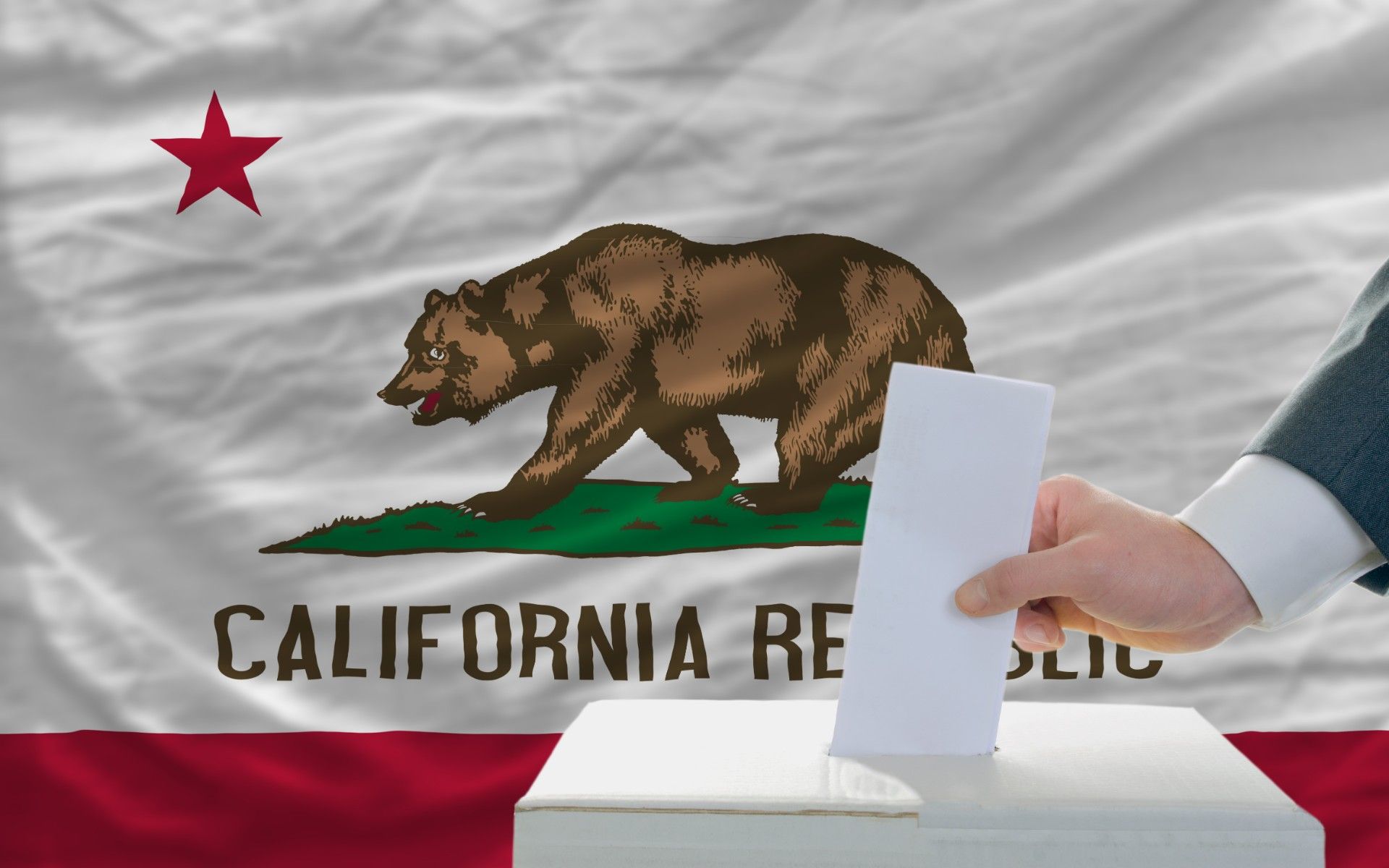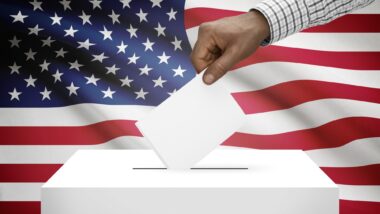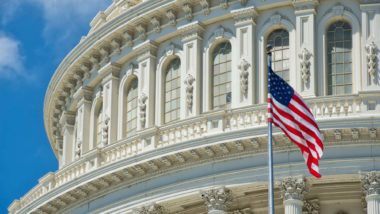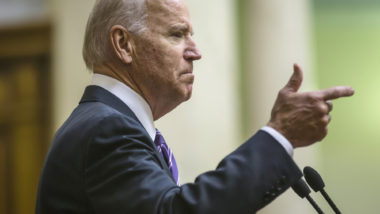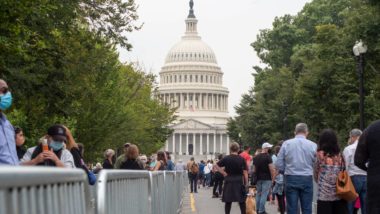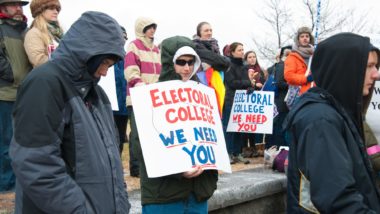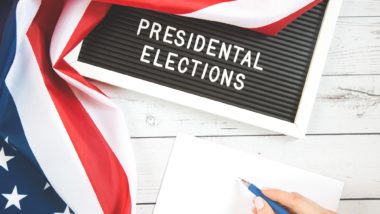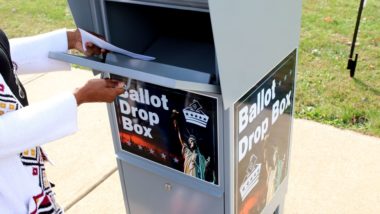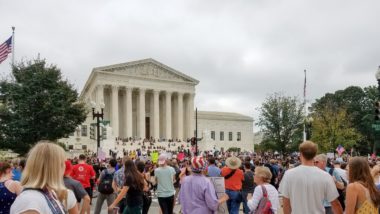Top Class Actions’s website and social media posts use affiliate links. If you make a purchase using such links, we may receive a commission, but it will not result in any additional charges to you. Please review our Affiliate Link Disclosure for more information.
As Election Day draws near, Californians are considering a host of ballot initiatives that could influence state laws across the U.S.
This year, California’s key ballot initiatives tackle issues involving the economy, jobs, racial justice and government spending.
So why would the rest of the U.S. care about California?
“Thanks to the state’s enormous size and relatively easy rules … California’s ballot initiatives have in the past served as something of a barometer for future trends in policy development and public opinion,” New York Magazine’s Ed Kilgore wrote.
Voters are considering 12 ballot initiatives this election, a “pretty average” number, Mark Baldassare of the Public Policy Institute of California told The New York Times.
Some of these ballot initiatives carry a national interest.
Nearly half a billion dollars in donations have been given to supporters or opponents of these measures.
The ballot initiative drawing the most in donations this election cycle is Proposition 22, which brings back the “independent contractor” status for app-based drivers.
California’s assembly passed a bill last year requiring those drivers to be classified as regular employees, mandating minimum wages and other benefits.
Companies such as Uber and Lyft have objected, donating more than $184 million toward efforts to stop it. The pushback also includes a U.S. Labor Department proposal, announced recently, providing “interpretive rules” supporting the independent contractor classification.
SFist.com reports polling on the Proposition 22 ballot initiative is “comfortably ahead 41-26” percent.
Another potential law with national implications is Proposition 16, which, if passed, would mark a return to affirmative action practices.
The ballot initiative “allows diversity as a factor in public employment, education, and contracting decisions.” If passed, it would reverse a ban on using “diversity” factors California voters approved in 1996, according to The New York Times.
The measure follows “aggressive” action against affirmative action policies from various groups, including from the U.S. Justice Department. In August, Yale University was accused of discrimination against Asian and white students.
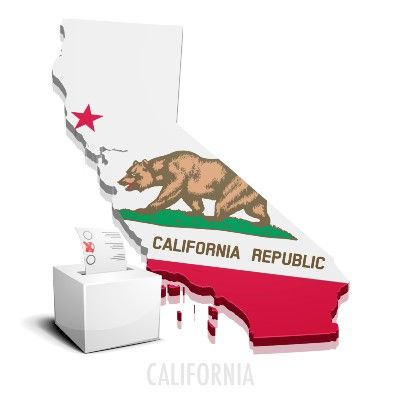
Housing issues and affordability are also addressed in several ballot initiatives.
Proposition 21 allows for rent controls on residential properties more than 15-years-old. Proponents say controls are needed to reduce homelessness, but opponents, including Gov. Gavin Newsom, say California already has “the nation’s strongest rent caps and renter protections,” Business Wire reported.
An estimated 37% of voters support this ballot initiative in polling, according to the Los Angeles Times.
Also under consideration is Proposition 15, a ballot initiative that “taxes properties based on current market value, instead of purchase price.”
The measure is supported by teachers, nurses, small-business owners and affordable-housing advocates, according to California’s secretary of state’s website, and is expected to bring in up to $11.5 billion in funding for schools and local governments.
Those opposing Proposition 15 deny local governments will get this funding and claim it will make everyday life in California more expensive.
Supporters, including Facebook’s Mark Zuckerberg, have donated nearly $28 million while opponents have spent some $20 million, KSBY News reported. About 50% support and 40% oppose Proposition 15, according to the San Francisco Chronicle.
California voters also will consider Proposition 17, a ballot initiative restoring voting rights to convicted felons on parole.
Supporters say these parolees have satisfied their crime’s punishment, adding convicts who vote are less likely to break the law again.
Opponents say this ballot measure denies crime victims their rights.
Criminal-justice issues are addressed in two other ballot initiatives.
Proposition 25 would abolish the cash bail system. Proposition 20, if passed, would define certain misdemeanors as felonies and restrict parole on those offenses.
California voters will also decide whether a 17-year-old can vote in an election cycle if they turn 18 before the date of the general election.
Proposition 18’s proponents contend the law is needed to “boost youth civic engagement” and “create lifelong participants” in democracy. Opponents say the “logic and reasoning” of 17-year-olds isn’t “fully developed.”
This year, Baldassare says ballot initiatives “are likely to reflect voters’ opinions on broad questions as much as the policy changes themselves.”
Proposition 15 “tells us something about how people are feeling about government spending and taxes,” he said. “Sixteen tells us something about how people are feeling about racial justice issues that have surfaced in the pandemic, and 22 tells us something about the economy and jobs,” he told The New York Times.
California’s ballot initiative process has been described as unique.
An amendment to the state’s constitution in 1911 has allowed California voters to participate directly with lawmaking through a special ballot initiative process, according to UC Hastings Law.
“With its particularly broad powers of referendum, California provides the rest of the country with examples of what can happen when voters get their way, unfiltered by politicians or legislators,” Kevin Starr, a history professor at the University of Southern California, told The New York Times, pointing to the state’s massive size. ”If the Pilgrims had landed in Santa Monica Bay, there’d be something like 13 states in California.”
What do you think of California’s ballot initiatives? Tell us in the comment section below.
Read About More Class Action Lawsuits & Class Action Settlements:
California Meal Break Lawsuit Against Printing Company Moves Forward
Macy’s, Spotloan, IC System Settlement Checks Mailed

